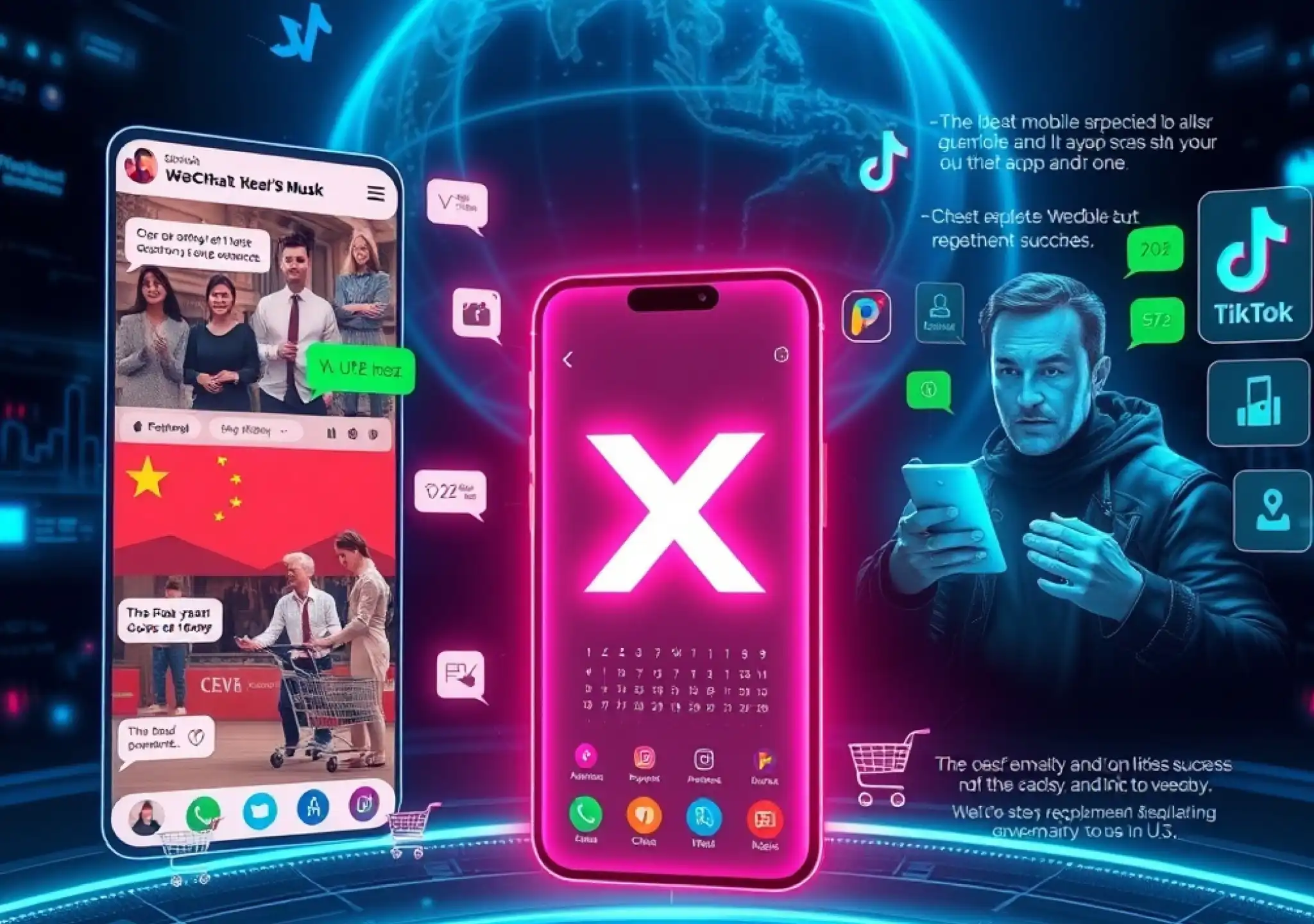Musk eyes super app model inspired by China’s WeChat
Elon Musk has revealed ambitions to evolve X, formerly Twitter, into an “everything app” that combines communication, finance, and various digital services under one platform.
In a recent announcement justifying the shift away from the Twitter brand and its iconic bird logo, Musk described his plans to develop X into a platform offering both all-encompassing communication features and financial capabilities. His concept appears to mirror the success of China’s all-in-one digital hub, WeChat.
WeChat’s Rise to Digital Dominance
WeChat, developed by Tencent in 2011, has become a vital part of everyday life in China. It seamlessly merges messaging, payments, web browsing, shopping, and more into one interface.
Its success was largely due to timing. At launch, only about 485 million Chinese were online in a population of 1.3 billion. With low credit card adoption and most people relying on small-denomination cash, WeChat met a critical demand by allowing mobile payments and services, essentially helping users leapfrog the desktop era and move straight into mobile apps, explained Kendra Schaeffer of Trivium China.
Schaeffer noted that WeChat thrived because it met China’s specific socio-economic needs at the time. Replicating that in the US, with its mature and highly segmented internet environment, would be much more difficult.
A Different Playing Field in the US
Today’s US digital market is far more advanced and fragmented than China’s was in 2011. Any super app Musk develops will face stiff competition from major players like TikTok, which is launching its own e-commerce operations, and from widely used payment systems such as Apple Pay and Google Pay.
Schaeffer emphasized that a successful integration of a payment solution within Musk’s app would be essential. Unlike China, US tech firms have struggled to incorporate seamless payment and shopping systems into social media platforms.
“No US platform has cracked the code on embedding commerce and payments directly into a social network,” Schaeffer explained.
The Role of the Chinese Government in WeChat’s Success
WeChat’s rise was also aided by strong backing from the Chinese government. Authorities blocked foreign platforms like Facebook, Twitter, and YouTube, while promoting domestic apps that aligned with state objectives, including surveillance and information control.
Many government departments in China operate via WeChat, using the platform to issue public information—including recent campaigns encouraging citizens to report suspicious activity, as part of national security initiatives.
According to Kitsch Liao of the Atlantic Council’s Global China Hub, WeChat supports the state’s broader goals of managing and monitoring citizens digitally.
Musk’s Uphill Battle with X
Since acquiring Twitter for $44 billion, Musk’s tenure has been fraught with controversy. He laid off most of the workforce, loosened content moderation rules, and launched a paid verification system, Twitter Blue, which has seen limited uptake. The app’s rebranding to X was widely criticized.
Musk recently admitted that X’s ad revenue has fallen by 50 percent and that the company is not yet cash flow positive—despite earlier predictions of breaking even.
In pushing toward a super app, Musk must also confront complex backend challenges. Liao said the app would need to address currency management, data privacy, and user protection—especially if it expands beyond the US.
US tech firms like Google and Meta have already faced significant penalties in the EU for mishandling user data and engaging in anti-competitive behavior.
Whether X will remain US-centric or aim for a global rollout is still unclear. In contrast, WeChat mainly operates within China, where it answers to just one centralized government.
“As it stands, the super app model doesn’t necessarily align with the values of liberal democracies and consumer-rights-focused markets,” Liao concluded.

